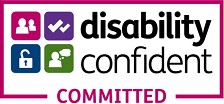Study how to create music for media with a specific focus on video games. Explore how to create non-linear music for interactive media by creating loops, stingers, and transitions. Discover how music is implemented in game engines and middleware (such as Unity and FMod) and consider how this impacts the music you can create. Learn a variety of compositional techniques covering harmony, melody and rhythm and consider how these will impact the mood and experience of the player. Get to grips with synthesis and other electronic music production techniques.
Composing for Film and Media 3: Video Games
When & Where
-
23 April 2025 - 2 July 2025 ( 20 hours, 10 weeks )
- Evening, Wednesday
-
View course timetable
-
Waterloo Centre
Quick Facts
- Availability Yes
- Course Code W24MPPJ01C
- Suitable For 19 year olds and up are permitted on this course
What you will learn
Learning Outcomes
By the end of this course, you will be able to:
- Develop music for implementation in video games
- Identify how composing for video games differs from other forms of media such as film and television
- Use compositional techniques to evoke and enhance the mood of a video game
- Have an understanding of how video game music is implemented within a game engine and how this impacts what you can compose
Cost
Class format and activities
Demonstrations and explanations from Tutor Practical workshops Class discussion of listening assignments Taking notes during lectures and audio-visual presentations Individual projects
Entry requirements
Completion of Film Scoring 2 or similar experience Access outside of class to a computer A strong interest in music. Some experience of using Apple computers would be an advantage, but support during class will be given. Basic computer skills, file management, etc.
What you need to know before you enrol
Demonstrations will be given using Logic Pro X software but can be applied to other digital audio workstations such as Ableton, Cubase, Pro Tools and Reaper. Due to the nature of the instruments/content of the course you might be exposed to high volume levels. We strongly encourage everyone to bring a pair of ear plugs to every lesson.
What you need
Pen and paper to take notes A USB memory stick to save your work Handouts and materials given by the tutor









